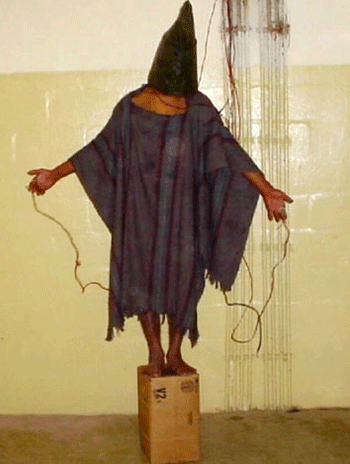(Cross-posted from Tubler.com, Jan. 25, 2015).
 Jameel Jaffer had an excellent post on Just Security earlier this week, examining the apparent inconsistency in U.S. policy on freedom of speech. On the one hand, the U.S. government argued against self-censorship in response to threatened violence, in the context of Charlie Hebdo, and Sony’s distribution of the “The Interview”. On the other hand, the U.S. government was in Federal Court this week resisting requests that photographic evidence of U.S. detainee abuse and torture be made public.
Jameel Jaffer had an excellent post on Just Security earlier this week, examining the apparent inconsistency in U.S. policy on freedom of speech. On the one hand, the U.S. government argued against self-censorship in response to threatened violence, in the context of Charlie Hebdo, and Sony’s distribution of the “The Interview”. On the other hand, the U.S. government was in Federal Court this week resisting requests that photographic evidence of U.S. detainee abuse and torture be made public.
The argument of the government is that disclosure of the pictures would make them available for use in propaganda, and would likely lead to violent reactions. In essence, the government wants to suppress information to prevent possible violent reprisals. Jameel Jaffer dismisses this argument well:
This is not a good argument for the suppression of the photographs. The same kind of argument could as easily have been made with respect to the Abu Ghraib photos, the Rodney King video, or the Eric Garner video. It could as easily have been made with respect to the Senate’s torture report—and, in fact, it was. And it’s not just that the argument gives those who threaten violence a veto over political debate; it gives the government a veto, too. To accept the argument, at least in the absence of a specific, credible threat directed against specific people, is to give the government far-reaching power to suppress evidence of its own misconduct. And the worse the misconduct, the stronger would be the government’s argument for suppression.
Moreover, he goes on to explain that the argument has no limiting principle. This week it is applied to the torture photographs, but it has been made in respect of video footage of the force-feeding of detainees in Guantanamo Bay, and in other contexts where violent reaction was even more speculative.
I would emphasize and elaborate on one aspect of this argument. Charlie Hebdo and “The Interview” represent a form of public criticism. For either to have succumbed to threats and engaged in “self-censorship” would have been to deprive the public of a perspective, an opinion, on certain issues in the public discourse. The exercise of self-censorship and resulting loss of such perspectives is considered harmful to democracy. Such is one of the arguments in support of the fundamental right of freedom of expression.
The torture pictures at issue in this week’s court proceedings constitute evidence of government malfeasance – indeed, of the government’s illegal acts. Disclosure of such information is far more important to democracy than the mere expression of opinions, and the censorship of such evidence is far more destructive of democratic values that are central to the freedom of expression.
Moreover, it is crucial to bear in mind that if harm would follow from the disclosure of this information, the actual cause of such harm is not the disclosure itself, but rather the illegality that the pictures depict. Permitting the censorship, and thus avoiding the negative consequences of its own illegal acts, simply makes similar government acts of illegality more likely in the future.
Finally, it is worth noting that the hypocrisy represented in the conflicting positions taken by the government on these issues has its own corrosive consequences. It undermines further the credibility of the U.S. government and weakens the moral authority of its arguments in support of fundamental human rights.
